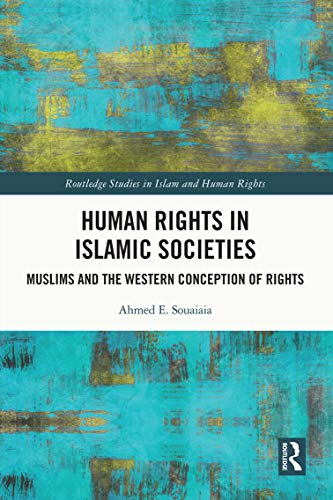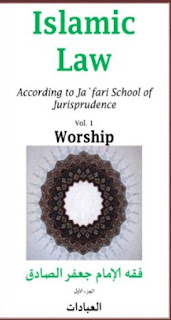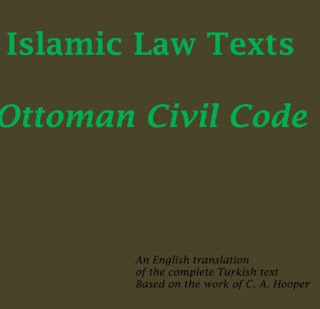Al-Ta`síb
The six kinds of shares determined in the Qur'an at times equal the whole estate, such as two daughters along with parents (2/3 + 1/6 + 1/6). Here the question of 'awl and ta'~tb does not arise, because the two daughters will take two-thirds and the parents one-third.
At times the total of the shares does not exhaust the whole estate, such as the case of a single daughter, whose share is half, or two daughters, whose share is two-thirds. This (in Sunni schools) results in ta`sib.
When the total shares exceed unity—such as when the husband, the parents and the daughter inherit together, the share of the husband, the daughter and the parents being one-fourth, one-half and one-third respectively—the estate cannot cover all the three shares together. This results in `awl. `Awl will be discussed in the second chapter.
Definition
Ta`sib has been defined here as the sharing of inheritance by the residuaries along with the closely-related sharers (such as where the decedent has two or more daughters and no son, or where he does not have any children, but has one or more sisters, no brother, and a paternal uncle). Here, the Sunni schools regard the brother of the decedent as an heir along with the daughter or daughters, and he receives one-half with the one daughter, and one-third if there are two or more daughters. Similarly, they regard the paternal uncle to be an heir along with a sister or sisters.
The Imámís state: Ta`sib is void, and it is Waajib that that which remains after the sharers have received their shares be returned to the closely-related sharers. Hence, (in the above examples) the whole estate, according to them, will be inherited by the daughter or daughters and the brother will receive nothing, and if the deceased has no child at all, but has a sister or sisters, they will inherit the whole estate to the exclusion of the paternal uncle, because a sister is nearer to the decedent than him and the 'nearer excludes the remote.'
This difference between the Sunni schools and the Imámís originates from the tradition of Tawus. The Sunni schools accept this tradition while the Imámís reject it. The tradition states:
To the heirs their respective shares, and of what remains, the first in order is a male relative
It has also been narrated in another form:
And what remains for the male relative
Hence, the daughter being a sharer is entitled to half the estate, and the brothers being the nearest male relatives of the decedent after her will be given the remaining half. Similarly, if the decedent has no children at all, and has a sister without any brother, the sister will take half as a sharer and the other half will be inherited by the decedent's paterna!, uncle, because he is the decedent's nearest ma',e relative after his sister.
The Imámís do not endorse the veracity of Tawus' tradition and reject its attribution to the Prophet because, according to them, “Tawus is an unreliable (d. a ~fl narrator. Had they endorsed this tradition they would have concurred with the Sunni schools, in the same manner as the Sunni schools would have concurred with them if they had rejected this tradition. After rejecting this tradition's attribution to the Prophet (S), the Imámís negate ta`seeb on the basis of the Qur'anic verse:
Men are entitled to a share Of what the parents and near relatives leave, and women are entitled to a share of what the parents and near relatives leave, whether it is little or more, a determined share.(4: 7)
This verse proves an equality between men and women concerning the right of inheritance, because it speaks about the women's share exactly as it speaks about men's, whereas those who accept Ta'seeb differentiate between male and female relatives and give the males the right to inherit to the exclusion of females where the decedent has a daughter, a brother's son and a brother's daughter. They give one half to the daughter and the other half to the brother's son, without the brother's daughter getting anything, although she is in the same category with him. Similarly, if the decedent has a sister, a paternal uncle and a paternal aunt, they divide the estate between the sister and the uncle and exclude the aunt. The Qur'an entitles both men and women to inheritance, while these schools entitle men and neglect women. This shows that the opinion justifying Ta'seeb is void because it leads to a void conclusion 5 In objection to this stand, it is observed that the inheriting of the whole estate by a daughter or daughters is contrary to the verse of the Qur'an:
Then if they are more than two females they shall have two-thirds of what the deceased has left, and if there is only one, she is entitled to half the estate; and for his parents, each is entitled to one-sixth of what he has left if he has a child.(4:11)
Similarly, the inheriting of the whole estate by a single sister contradicts the explicit verse:
If a childk# man dieJ and he haJ a sister, her share iJ half of what he haJ left, and he Jhall be her heir if Jhe haJ no child; then if there be two JiJter8, theirllhare i8 two-thirds....(4:176)
The Qur'an determines the share of a single daughter as half and that of two or more daughters as two-thirds. Similarly, it determines the share of a single sister to be half and that of two or more sisteR to be two-thirds, while the Imámís obviously oppose this law.
The Imámís give the follo~,ving reply in regard to the fi~st verse (4:11):
1. Certainly, the Qur'an has determined the share of two or more daughters to be two-thirds and that of a single daughter as half; but it is necessary that there be another person so that the remainder after the deduction of the share could revert to him. The Qur'an does not specifically mention this person, and had it done that, there would have been no difference of opinion. The Sunnah also makes no mention of it, neither explicitly nor implicitly, and the tradition, ... ,,~ is not authentic as already mentioned. Hence nothing remains to prove specifically to whom the remainder goes, except the following verse of the Qur'an:
Some relatives are preferred over some others in the ordinance of God.(33:6)
It proves that the nearer relative is to be preferred to the more distant, and there is no doubt that one's daughter is more closely related to one than one's brother, because she is related to him directly while his brother is related to him through either parent or both of them. There fore, in such a case, the remainder will revert to the daughter or daughters, to the exclusion of the brother.
2. The Hanafi and the \anbalí schools observe: If the deceased leaves behind a daughter or daughters and there exists noneel~efrom among the sharers and the residuaries,1 6 the whole estate will devolve on the daughter, half as a share and the other half by 'return,' and similarly on the two daughters, two-thirds as their share and the remaining by way of 'return.' If the verse does not prove the negation of the 'return' devolving on the sharers in this case, it will similarly not negate it in other cases, because a single proof is incapable of being broken into parts. Furthermore, the Hanafi and \anbalí schools say: If the decedent leaves behind a mother and there are no other sharers and residuaries, she will take a third as a sharer and the remaining two-thirds by way of 'return'. If a mother can take the whole estate, it is similarly Waajib that the daughter be also entitled to it, because both of them belong to the class of sharers. (al-Mughni and al-Shi'rani's M~an, baab al-fara'id)
3. The four Sunni schools concur that if the decedent leaves behind his father and a daughter, the father will take one-sixth as a sharer and the daughter will similarly take half as a sharer, and the remainder will revert to the father, despite the Qur'anic verse *********** . Hence as the share determined by this verse does not negate the father's right to receive more than one-sixth, similarly the share determined in the verse ...******** will not negate the daughters' right to receive more than two-thirds nor a single daughter's right to the excess over half, especially after the shares of both the daughters and the father have been mentioned in the same verse and the same context.
4. The Qur'an says:
And call two witneueJ from amon~ your men, but if there are not two men, then one man and two women....(2:282)
This verse explicitly states that a debt is proved by two male witnesses and also by the evidence of a male and two female witnesses. Some of the four Sunni schools consider it provable by a single male witness and an oath; rather, Malik says: It is proved by the evidence of two women and an oath. Hence, as thi~:verse does not prove that a debt is not prov able by a single male witness along with an oath, similar the verse relating to inheritance does not prove the invalidity of reverting the re mainder to a daughter or daughters, and to a sister or sisters. The Imámi reply in regard to the second verse (4:176)
~ is that the word walad is applicable to both a male and a female child because it is derived from wiladah (birth), which includes son and daughter, and also because the common denominator between a person and hi6 relatives is kinship, which is inclusive of males and females. The Qur'an has used the word awlad for children of both sexes.
God char~eJ you, concerning your children: to the male the like of the portion of two femaleJ....(4:11)
...And it behaueJ not the All-merciful to take a child.(19:92)
As these verses show, the word walad, stands for 'child,' irrespective of sex.
O mankind, we have created you from a male and a female....(49:13)
Accordingly, since a son prevents the brother from inheriting, a daughter will also prevent him. What has been said about the daughter's inheritance applies in the case of the sister as well. Apart from this, the Imámís have raised a number of objections against the Sunni schools, bringing to their notice certain conclusions that follow logically from their thesis, which are as unnatural as they are opposed to qiyaas, which is practised by these schools. Among these criticisms is the one mentioned in a-Jawaahir, that if the decedent has ten daughters and a son, the son, in this case, will take one-sixth and the daughters the remaining five-sixths. If in the place of the son the decedent has a paternal uncle's son (i.e. if he leaves behind ten daughters and a paternal uncle's son), according to the rule of ta's.~b the uncle's son will receive one-third and the daughters two-thirds, and consequently the son's position here is worse than that of the uncle's son!
This is despite the fact that man has greater affection for his children when compared to his brothers, and he sees in his children, sons and daughters, an extension of his own existence. It is for this reason that we see individuals belonging to the Lebanese families having only daughters changing their school of fiqh from Sunni to Shi'i solely because they fear that their brothers and uncles will become coheirs with their children. Presently, there are many Sunni scholars thinking of forsaking the principle of ta'sib and accepting the Imámi view concerning the inheritance of a daughter, exactly as they have abandoned the view invalidating bequest in favor of an heir and have accepted the Imámi view despite the concern of the Sunni schools regarding its invalidity.




0 comments:
Post a Comment